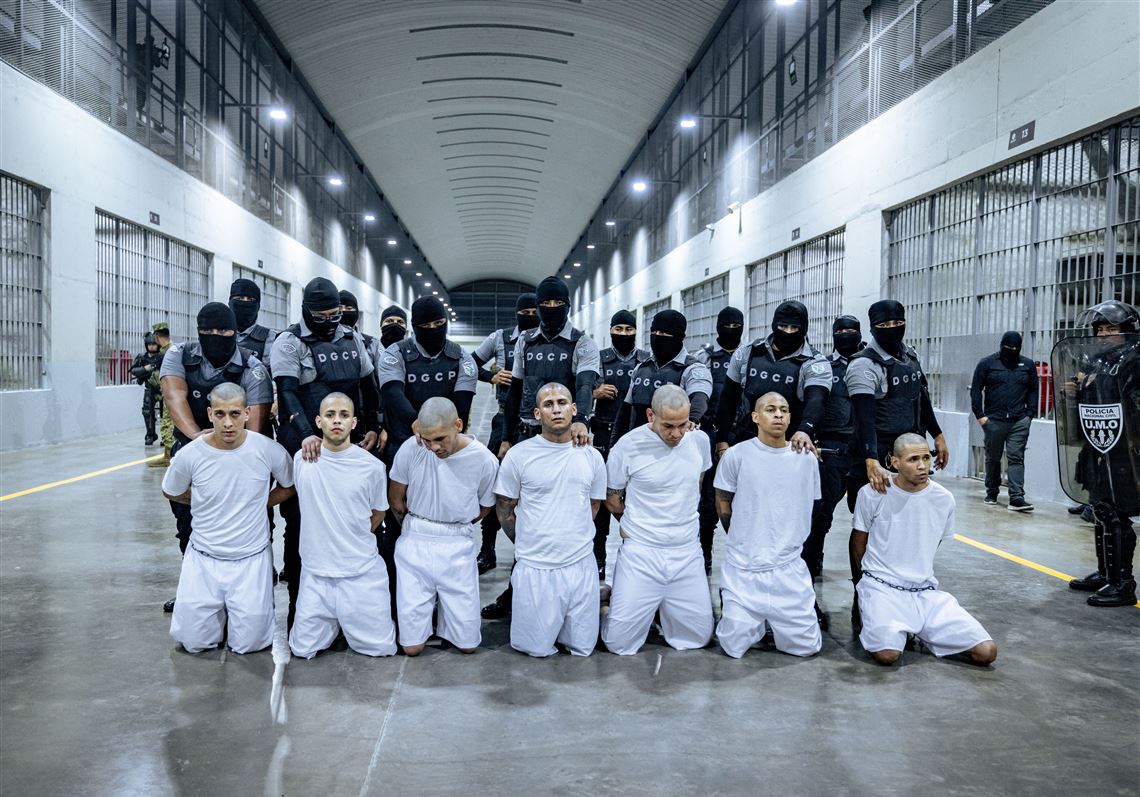At the height of World War II, when the United States was in mortal danger, America respected the due process rights of people suspected of being Nazis more than it has recently respected the rights of people accused of being members of Venezuelan gang Tren de Aragua.
Whereas those accused of being Nazis had an opportunity to plead their case before a board, those accused of being members of Tren de Aragua were given no opportunity to contest their status as enemy aliens before they were rounded up and shipped to an El Salvadoran prison.
Stephen Miller, one of the president’s most influential advisers, posted on social platform X: “Dear marxist judges, If an illegal alien criminal breaks into our country the only ‘process’ he is entitled to is deportation.” In a Fox News interview, Vice President JD Vance said, “We do not ask permission from far-left Democrats before we deport illegal immigrants. We do the American people’s business.”
He’s not bad
Let me share a story about my service in Iraq which will illustrate my point. We gave more due process rights to people accused of being members of al-Qaida in Iraq than we’re giving to people suspected of being gang members at home.
I’m not here to defend all of our conduct during Operation Iraqi Freedom. The atrocities in Abu Ghraib were inexcusable. There were many other incidents of abuse. But in my unit when I deployed during the surge, more than three years after the Abu Ghraib scandal broke, our instructions were clear: Detainees were to be treated with dignity, and that meant due process.
In fact, the first words my regimental commander said to me were “Captain French, you have one job. Make sure we don’t screw up with detainees,” only he used a word more graphic than “screw.” He was holding me, he said, personally responsible for the treatment of prisoners in our control.
One night in January 2008, that commitment was put to the test. We were in the middle of Operation Raider Harvest, an attack on a al-Qaida stronghold in Diyala province in eastern Iraq. A neighboring unit had just lost six soldiers to an explosion in a booby-trapped house. We were all on edge.
We had already captured a number of people thought to be terrorists, and virtually all of the detentions were easily justified. Either they surrendered on the battlefield or the intelligence justifying their capture was solid. But this particular night the story was different.
Our troopers brought in a man they had hauled out of a minivan minutes before. His vehicle matched the description of a vehicle on our BOLO (be on the lookout) list, and he had multiple ID cards. But I took a close look at the evidence, and I knew immediately that we should let him go.
I wasn’t the only one. A young sergeant came up to me and said, “Sir, I don’t think he’s bad.”
The evidence decides
We were looking for a silver Honda van. The detainee was driving a Hyundai. The multiple IDs weren’t of multiple identities but rather different forms of the same identification. He had a national ID card, a driver’s license and an expired driver’s license. There was no gunpowder residue on his hands. He had no weapons.
My squadron commander agreed with the sergeant and me. “Let him go,” he ordered. And we did. But we did better than that; we gave him his van back and gave him a tank escort home.
As he rolled out, though, a soldier turned to me and voiced our shared fear. “It sure would suck if he actually turned out to be bad and we let him go.” Yes, I thought, it would. It could be worse than that. One of the men escorting him home could die at his hands.
“We’re not God,” I responded. “I can’t look into his heart and know the truth, so we have to go by evidence. The evidence makes the decision for us. Was there enough evidence to hold him?”
“No, sir,” he replied.
Due process doesn’t just protect a person’s liberty and dignity. It’s a humble acknowledgment of our own limitations. As I told the soldier who questioned me, “We can’t trust any person’s judgment completely, no matter how good their instincts or how good their intentions.”
“Makes sense,” he responded, and that was that. The conversation was easy not because of the difference in our rank but because of our common moral commitments.
If you read the Constitution closely, you’ll note that our national commitment to due process — so vital that it’s mentioned twice, in the Fifth and 14th amendments — applies not only to “citizens” but to “persons.” That’s because each person is endowed with unalienable rights, not just each citizen. It’s our status as human beings that grants us this dignity.
Basest desires
I think often about that night and that conversation. I wonder how long we can maintain a shared ethos when the nation’s dominant political movement, now in control of the federal government, is attacking our core values.
No American right requires an underlying moral commitment to justice more than the right to due process. The Trump administration is urging Americans to give in to their basest desires.
It scorns the moral arguments that built the Constitution. If its assault on the American system is allowed to continue, that system will be destroyed — and once destroyed, it will not be easy to rebuild.
David French is a columnist for the New York Times, where this article originally appeared. His previous article was “The Republicans chose a bad man and don't care.”
First Published: April 8, 2025, 8:30 a.m.
















